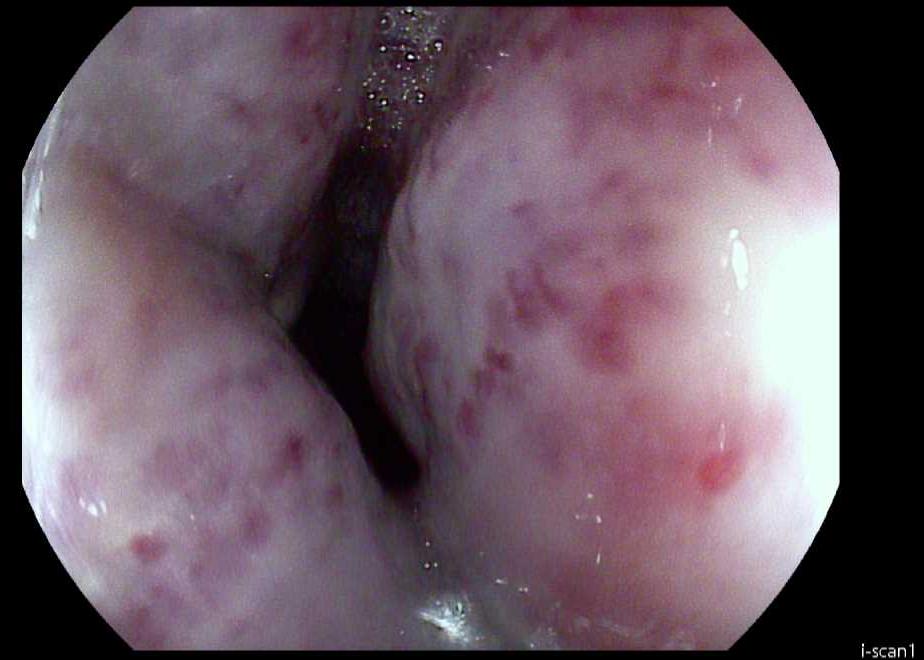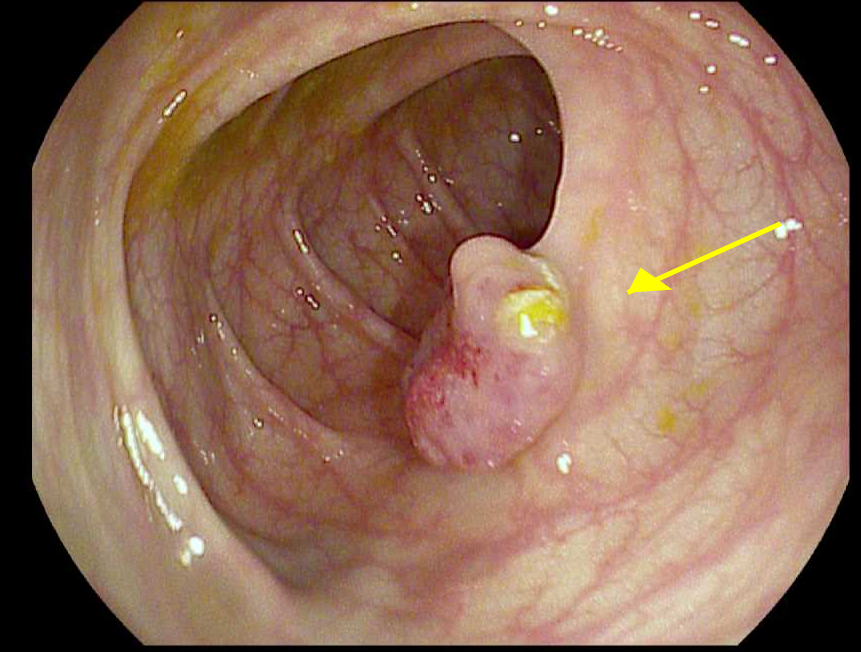Monday Poster Session
Category: General Endoscopy
P3008 - A Rare Case of Blue Rubber Bleb Nevus Syndrome With Recurrent Gastrointestinal Bleeding: Importance of Multidisciplinary Management
Monday, October 27, 2025
10:30 AM - 4:00 PM PDT
Location: Exhibit Hall

Robert S. Gordon, III, DO, MS
George Washington University School of Medicine and Health Sciences
Arlington, WA
Presenting Author(s)
Award: ACG Presidential Poster Award
Robert S.. Gordon, DO, MS1, Zeina Bani Hani, MBBS2, Susie J. Park, MD3, Mrudula Bandaru, MD4, Ankit Patel, MD3, Marie L. Borum, MD, EdD, MPH, FACG5
1George Washington University School of Medicine and Health Sciences, Arlington, WA; 2George Washington University, Washington, DC; 3George Washington University School of Medicine and Health Sciences, Washington, DC; 4Department of Medicine, George Washington University School of Medicine and Health Sciences, Washington, DC; 5Division of Gastroenterology and Liver Disease, Department of Medicine, George Washington University School of Medicine and Health Sciences, Washington, DC
Introduction: Blue Rubber Bleb Nevus Syndrome (BRBNS) is a rare syndrome with ~200 cases in the literature. It is characterized by numerous venous malformations, most notably the skin and gastrointestinal (GI) tract. It is caused by a sporadic double somatic activating mutation of the TEK receptor, resulting in unregulated angiogenesis. Patients with GI lesions are at risk for bleeding with large lesions rarely causing volvulus and intussusception. We report an unusual case of BRBNS illustrating the importance of multidisciplinary management of GI lesions.
Case Description/
Methods: A 36-year-old female with BRBNS complicated by recurrent gastrointestinal bleeding requiring previous small bowel resection presented with several days of fatigue, lightheadedness, dyspnea, abdominal pain, and hematochezia. Her admission hemoglobin of 4.0 g/dL improved to 7.8 g/dL after 2 units of packed red blood cells (pRBC). An upper endoscopy revealed a large circumferential blue rubber bleb in the mid-esophagus, approximately 28 cm from the incisors (Figure 1), and several gastric blebs (3-8 mm). An enteroscopy revealed numerous blebs throughout the duodenum and jejunum (10-20 mm). The colonoscopy showed several blebs in the terminal ileum (20-30 mm) and multiple colonic blebs (10-20 mm) (Figure 2). There was no evidence of active or recent bleeding. She received a total of 3 units of pRBC and 3 intravenous iron infusions before discharge with recommendations for continued management with hematology and gastroenterology.
Discussion: BRBNS is a rare disorder without well-defined treatment guidelines. Current management is primarily supportive, involving iron supplementation and blood transfusions as needed. Surgical and endoscopic interventions, including application of hemostatic agents, sclerotizing techniques, looping, and banding for active bleeding, have been employed. Sirolimus, or other mTOR inhibitors, may be promising options with studies displaying reduced lesion size and improved hemoglobin levels, but concerns about the side effect profile limit widespread use. BRBNS patients are reported to have average lifespans, often with frequent gastrointestinal bleeding. While our patient required surgery during childhood, she is currently managed by hematology and gastroenterology consultants. Multidisciplinary involvement is needed to coordinate care in an effort to avoid unnecessary invasive procedures. Studies are needed to develop treatments and establish management guidelines.

Figure: Figure 1. Large circumferential bleb located in the mid-third of the esophagus, approximately 28 cm from the esophagus.

Figure: Figure 2. Bleb approximately 20 mm in size, located in the transverse colon
Disclosures:
Robert Gordon indicated no relevant financial relationships.
Zeina Bani Hani indicated no relevant financial relationships.
Susie Park indicated no relevant financial relationships.
Mrudula Bandaru indicated no relevant financial relationships.
Ankit Patel indicated no relevant financial relationships.
Marie Borum indicated no relevant financial relationships.
Robert S.. Gordon, DO, MS1, Zeina Bani Hani, MBBS2, Susie J. Park, MD3, Mrudula Bandaru, MD4, Ankit Patel, MD3, Marie L. Borum, MD, EdD, MPH, FACG5. P3008 - A Rare Case of Blue Rubber Bleb Nevus Syndrome With Recurrent Gastrointestinal Bleeding: Importance of Multidisciplinary Management, ACG 2025 Annual Scientific Meeting Abstracts. Phoenix, AZ: American College of Gastroenterology.
Robert S.. Gordon, DO, MS1, Zeina Bani Hani, MBBS2, Susie J. Park, MD3, Mrudula Bandaru, MD4, Ankit Patel, MD3, Marie L. Borum, MD, EdD, MPH, FACG5
1George Washington University School of Medicine and Health Sciences, Arlington, WA; 2George Washington University, Washington, DC; 3George Washington University School of Medicine and Health Sciences, Washington, DC; 4Department of Medicine, George Washington University School of Medicine and Health Sciences, Washington, DC; 5Division of Gastroenterology and Liver Disease, Department of Medicine, George Washington University School of Medicine and Health Sciences, Washington, DC
Introduction: Blue Rubber Bleb Nevus Syndrome (BRBNS) is a rare syndrome with ~200 cases in the literature. It is characterized by numerous venous malformations, most notably the skin and gastrointestinal (GI) tract. It is caused by a sporadic double somatic activating mutation of the TEK receptor, resulting in unregulated angiogenesis. Patients with GI lesions are at risk for bleeding with large lesions rarely causing volvulus and intussusception. We report an unusual case of BRBNS illustrating the importance of multidisciplinary management of GI lesions.
Case Description/
Methods: A 36-year-old female with BRBNS complicated by recurrent gastrointestinal bleeding requiring previous small bowel resection presented with several days of fatigue, lightheadedness, dyspnea, abdominal pain, and hematochezia. Her admission hemoglobin of 4.0 g/dL improved to 7.8 g/dL after 2 units of packed red blood cells (pRBC). An upper endoscopy revealed a large circumferential blue rubber bleb in the mid-esophagus, approximately 28 cm from the incisors (Figure 1), and several gastric blebs (3-8 mm). An enteroscopy revealed numerous blebs throughout the duodenum and jejunum (10-20 mm). The colonoscopy showed several blebs in the terminal ileum (20-30 mm) and multiple colonic blebs (10-20 mm) (Figure 2). There was no evidence of active or recent bleeding. She received a total of 3 units of pRBC and 3 intravenous iron infusions before discharge with recommendations for continued management with hematology and gastroenterology.
Discussion: BRBNS is a rare disorder without well-defined treatment guidelines. Current management is primarily supportive, involving iron supplementation and blood transfusions as needed. Surgical and endoscopic interventions, including application of hemostatic agents, sclerotizing techniques, looping, and banding for active bleeding, have been employed. Sirolimus, or other mTOR inhibitors, may be promising options with studies displaying reduced lesion size and improved hemoglobin levels, but concerns about the side effect profile limit widespread use. BRBNS patients are reported to have average lifespans, often with frequent gastrointestinal bleeding. While our patient required surgery during childhood, she is currently managed by hematology and gastroenterology consultants. Multidisciplinary involvement is needed to coordinate care in an effort to avoid unnecessary invasive procedures. Studies are needed to develop treatments and establish management guidelines.

Figure: Figure 1. Large circumferential bleb located in the mid-third of the esophagus, approximately 28 cm from the esophagus.

Figure: Figure 2. Bleb approximately 20 mm in size, located in the transverse colon
Disclosures:
Robert Gordon indicated no relevant financial relationships.
Zeina Bani Hani indicated no relevant financial relationships.
Susie Park indicated no relevant financial relationships.
Mrudula Bandaru indicated no relevant financial relationships.
Ankit Patel indicated no relevant financial relationships.
Marie Borum indicated no relevant financial relationships.
Robert S.. Gordon, DO, MS1, Zeina Bani Hani, MBBS2, Susie J. Park, MD3, Mrudula Bandaru, MD4, Ankit Patel, MD3, Marie L. Borum, MD, EdD, MPH, FACG5. P3008 - A Rare Case of Blue Rubber Bleb Nevus Syndrome With Recurrent Gastrointestinal Bleeding: Importance of Multidisciplinary Management, ACG 2025 Annual Scientific Meeting Abstracts. Phoenix, AZ: American College of Gastroenterology.

